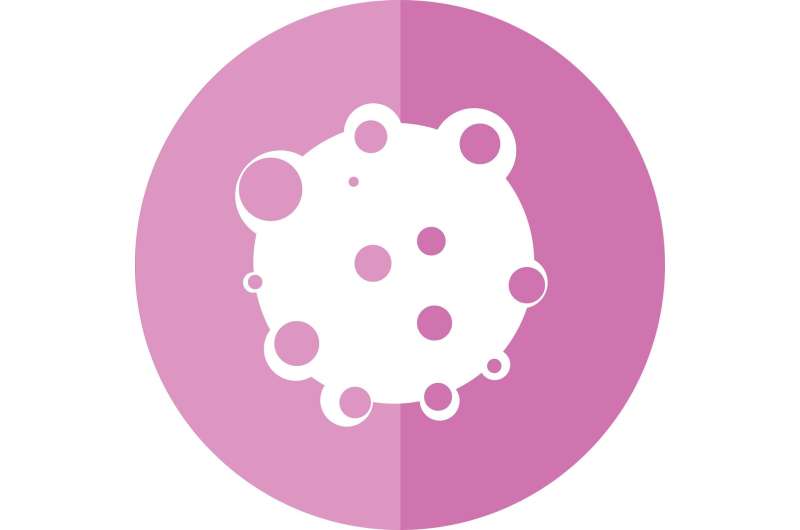Cellular 'hotspots' in the brain may signify the earliest signs of cancer

Researchers at King's College London Institute of Psychiatry, Psychology, & Neuroscience, in collaboration with King's College Hospital NHS Foundation Trust, have found small clusters of cells in the brain that identify locations where tumors could become malignant.
The study, which has been published in Neuro-Oncology Advances today, analyzed pieces of living human brain tissue from 20 people undergoing brain tumor surgery at King's College Hospital, the largest neuro-oncology center in Europe. The researchers found groups of tumor cells clustered around blood vessels and believe that these sites could be the seedbeds for malignant progression, the process by which a tumor becomes a fast growing and uncontrolled cancer.
To study the brain tissue, neurosurgeons cooled the surface of the brain. They then took a sample and placed it into a cerebrospinal fluid solution. Once it had been transported to the lab, the tissue was then placed into a miniaturized incubation chamber specially designed for this study, where it was bathed in a solution that makes the living tumor cells fluoresce and more easily studied under a microscope.
Dr. Gerald Finnerty, Lead author at King's IoPPN and Honorary Consultant Neurologist at King's College Hospital said, "This research is hugely significant. The "hotspots" we found exhibited many of the hallmarks of cancer. The ability to pinpoint areas at high risk of malignancy gives us a much better chance of establishing why the brain tumor becomes malignant."
Brain cancers are difficult to treat because they are so invasive. Even after surgery and chemoradiotherapy there is still a high risk that some cancerous cells can be left behind, increasing the likelihood that the cancer will return. This unfortunately means that many of the young adults it affects do not survive beyond a year.
Dr. Alastair Kirby, First author on the study said, "It has been a privilege to work with brain tumor patients and our neurosurgical team to deliver this highly innovative research. Live human brain tissue offers great opportunities to study how a person's brain tumor responds to treatments. This will revolutionize therapy and bring precision medicine of brain cancer one step closer."
More information: Alastair J Kirby et al, Multicellular 'hotspots' harbor high-grade potential in lower-grade gliomas, Neuro-Oncology Advances (2021). DOI: 10.1093/noajnl/vdab026



















